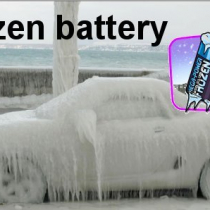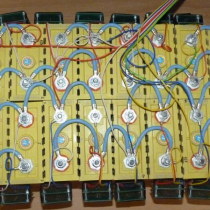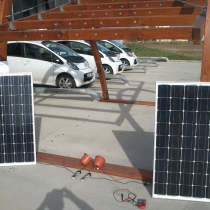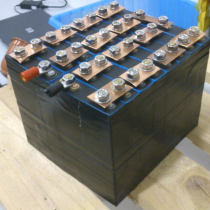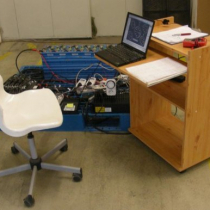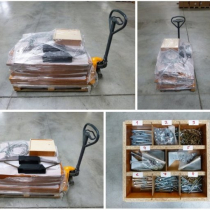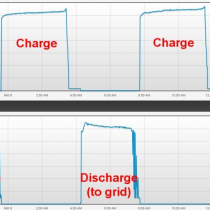Blog - Tests and diagnosis
FAQ: The discharge level of the 12V batteries with PCM
FAQ: The discharge level of the 12V batteries with PCM ** Question: I keep discharging the 12V battery with PCM. But when the voltage gets to some 11V, the voltage suddenly drops to 0V. Is the battery defective? No, the battery is not defective. The PCM board in side this type of battery will disconnect the out
Simple Digital Voltmeter (range 0 - 30V)
Simple Digital Voltmeter (range 0 - 30V)
The voltmeter allows to measure Voltage from 0 to 30V. For the measurement under 4V requires an external power supply (in range 5 V - 30 V). See the operation manual for examples. How to use:
1) The red wire connect to the (+) battery terminal
Freezing batteries - not with LiFePO4
Freezing batteries - not with LiFePO4
The lead acid battery will freeze when fully discharged. See this: The electrolyte of a fully charged lead-acid battery with density of 1.28 g/cm3 changes the structure to solid at -68°C. With density of 1.25 g/cm3 (slightly discharged battery), t
The 24V/200AH battery pack with CBM
The 24V/200AH battery pack with CBM
Our customer reference photo - the battery pack with 2x 100AH cells in parallel. The configuration is 2P8S. The balancing is done using the CBM boards, 3 CBMs for each dual-cell.
TEST: The Winston LiFePO4 cell 160AH short-circuit at...
TEST: The Winston LiFePO4 cell 160AH short-circuit at 1000Amp for 13 minutes
This test proves the safety of the LiFePO4 technology: no fire, no uncontrolled explosion into in fire, no sparking, no burning, no fire smoke (black).
The short circuit on an over-charged cell. This video shows the extrem
Testing solar panels at GWL
Testing solar panels at GWL
See a photo from our work. Testing solar panels to confirm the performance at the sunshine. You can see the EVDock carport wooden frame and the three of our electric vehicles (C-ZEROs).
Custom battery pack 48V 10AH using WINA cells
Custom battery pack 48V 10AH using WINA cells
A photo from a customer project using 16 cells WN10AH to make a 48V 10AH battery pack for a “super EVBIKE”. The management of the pack will be done by means of the SBM board.
The details about the small capacity LiFePO4 cells
Testing the ESS solution - 1.5 MegaWatt of cycled storage...
Testing the ESS solution - 1.5 MegaWatt of cycled storage reached
We keep running and testing the Energy Storage Station. During each cycle we store and release about 5 kWh of energy. For testing we make 3 cycles a day. In the last 100 days we made 300 cycles already and stored and released the
EVDock - more photos!
EVDock - more photos!
The spring is coming. Sun is shining. More reasons to park your car under the EVDOCK. Parkyour car, protect it from the sun-shineand change the energy into solar power, using the MicroInverters. (The MicroInverters and other electrical components
The Energy Storage in Action
The Energy Storage in Action
See the testing results of the . Our 5 kWh energy bank is working at 3 cycles a day. This means we store and release 15 kWh energy in a day.
We use to monitor the AC power of the solution.

 English
English Česká republika
Česká republika Germany
Germany France
France España
España Italia
Italia Sverige
Sverige Polski
Polski Nederland
Nederland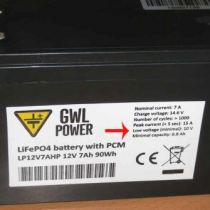
_1.jpg)
